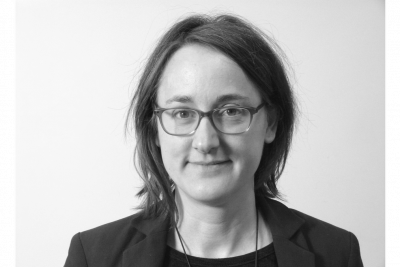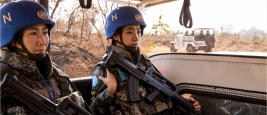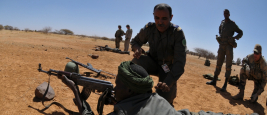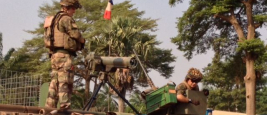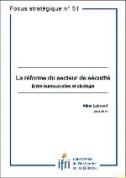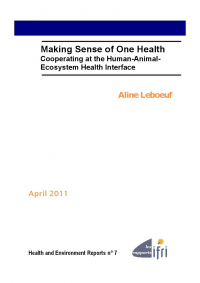
Aline LEBOEUF
Former Research Fellow, Security Studies Center, Defense Research Unit
Dr. Aline Leboeuf is a consultant and former research fellow then associate research fellow at Ifri. She was a research fellow at Ifri from 2003 to 2020 which led her to conduct research on security and development, security sector reform (SSR), protection of civilians (including security of expatriates), post-conflict situations in West Africa (especially Sierra Leone and Côte d'Ivoire), foresight (with the concept of 'fluid conflicts') and global health governance (the global management of avian influenza, the One Health approach).
Aline Leboeuf, PhD graduated from the Institut d'Etudes Politiques of Paris (Development major) and from Paris I Sorbonne (Master in International Relations). Her PhD's title was "Security sector reform in Sierra Leone" (Sorbonne University Paris I, January 25, 2013).
While it was left behind from power politics for the last decades, Africa is at the core of a renewed attention from global powers.
Nowadays, numerous actors are involved in military cooperation programs aiming to strengthen African armed forces and build special partnerships.
For about 20 years, security sector reform (SSR) has emerged as an essential tool for crisis recovery and reconstructing weak and failed states at the heart of the security-development continuum. It is time to take stock of the lessons learnt about SSR and to offer an analysis of good...
In December 2013, France launched its operation Sangaris in the Central African Republic. What conclusions can be drawn for the stabilization of the country and the protection of civilians?
The concept of Security Sector Reform (SSR) was developed during the 1990s as a response to several problems chiefly faced by countries in post-conflict transitions: weak new governments; conflicting civil-military relations; ill-defined division of tasks between the armed forces, the police,...
This study aims at showing and making sense of the One Health approach, according to which it is impossible to defeat infectious disease without working at the interface between human health, animal health and the environment.
Based on interviews with practitioners in Washington, Jakarta, Geneva, Paris, Brussels and Rome, and on the analysis of existing empirical research, the present study provides the reader with a practical and manageable toolkit for understanding the AI field - its characteristics, scientific...
Buy the article on CAIRN websiteAbstract
Rapid and ongoing transformation of conflicts, or 'fluidity,' may well become the most intriguing and destabilizing characteristic of the future international environment. What would such a scenario imply in terms of actors'...
Abstract
The British commitment to Sierra Leone, which is global, without precedent, and possible thanks to the partnership between the British and the Sierra Leonean governments, gave way to an increasing interdependence, which could prove dangerous for British...



